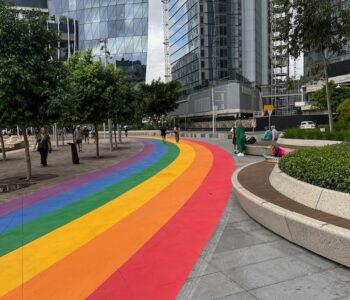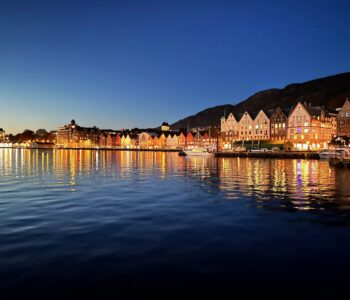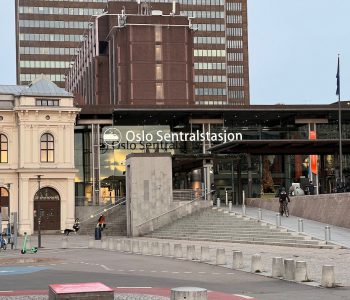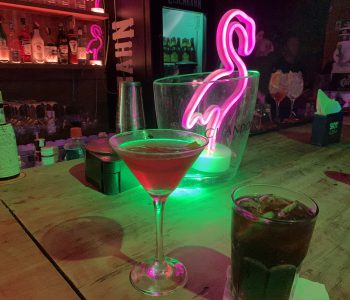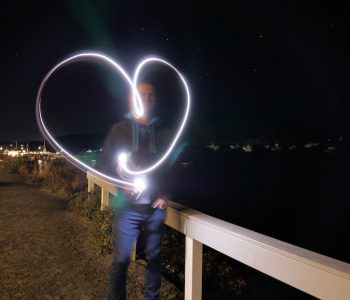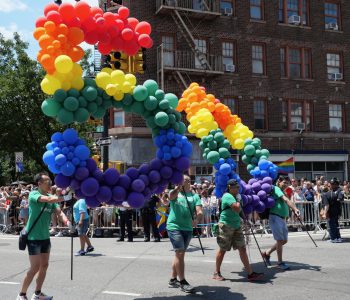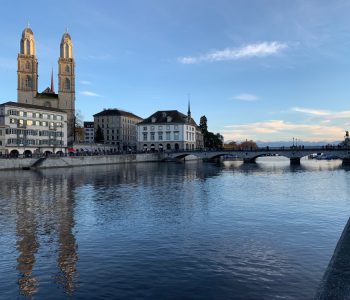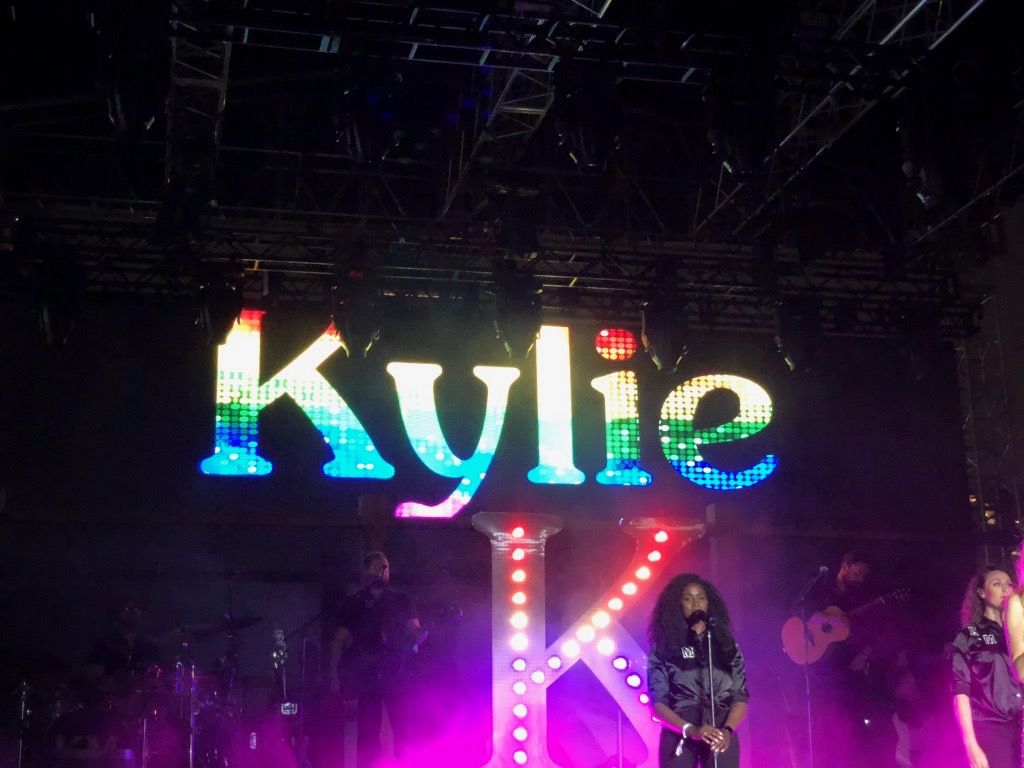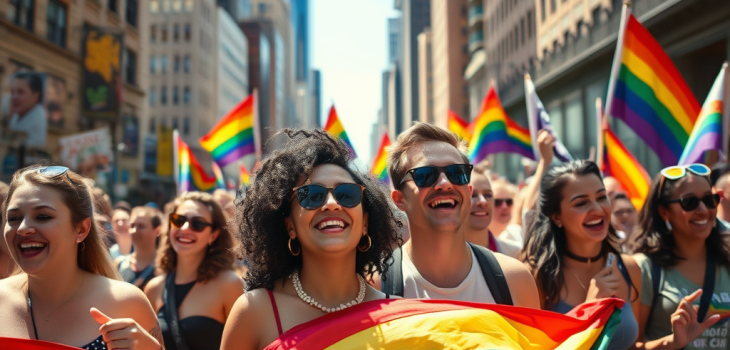 Blog
Blog
Pride Reflections
With just days left until the election and with thoughts on how important human rights are in this election, I feel the need to reflect now more than I ever have on what pride means to me. Pride, a celebration of who we are as LGBTQ+ individuals, is also so much more.
Remembering NYC Pride this year, I wonder: what happened to rainbow capitalism? Rainbows used to be plastered everywhere, even the Empire State Building was lit up with them. In some ways I guess it’s like the old days, when it was all about people who came out to celebrate and protest. There were plenty of crowds for the parade and less corporate sponsorship.
I think further back to a human resource professional who told me that I had to respect that people had all variety of opinions, especially political opinions. While they were correct that people have opinions, I do not have to respect them nor should any organization respect those opinions that communicate a desire to dehumanize and take away people’s rights.
Unfortunately this is what we are seeing so many times with LGBTQ+ and woman’s rights: this perverse desire to strip away our rights, this unnatural desire to make us less than human. We have made so much progress, but we are seeing it fall away as organizations like Toyota say that diversity, equity, and inclusion (DEI) are no longer important and they won’t be participating in cultural events like Pride. These organizations have communicated the need to be inclusive of all opinions including those that wish us harm. The paradox of inclusion is being manifested, except that inclusion is not a value but a social contract.
Why are organizations changing their tune? Were they just chasing the pink dollar and never had our interests at heart? Was it truly just rainbow capitalism? Did they listen to the right wing and their anti-woke and anti-LGBTQ+ and think that inclusion includes discrimination? Whatever the reason, they are wrong.
These misguided organizations are unfortunately showing their true values. Those values will affect the lives and careers of LGBTQ+ individuals. In fact half of LGBTQ+ individuals have suffered discrimination at work. How can those organizations truly stop and properly investigate this discrimination when they believe that the discriminator has a right to communicate harmful opinions and even to act on them. Discrimination that isn’t investigated properly often leads to retaliation, which is the leading category of complaints with the EEOC. Nika White, international author and DEI consultant, talks about this in the terms of institutional betrayal: when organizations say they are a safe space, and then betray our trust. It is so much more than just hurtful.
As destructive as it has been for these organizations to step away from DEI, they have enlightened us to their true values. This development challenges us to restore Pride to its roots as a form of protest, and requires us to be selective with the organizations that we choose to work for and do business with.
So, of course, Pride is celebration of how far we have come; we should celebrate our progress and uniqueness. However, we must be vigilant. We must continue to say, “We’re here, we’re queer, get used to it!” We have an obligation to be inclusive towards all individuals. However, let me be clear, we can’t accept this false pretense of inclusion that suggests that any idea that dehumanizes us is acceptable. Pride is being proud of who we are as individuals and demanding the rights we deserve.
